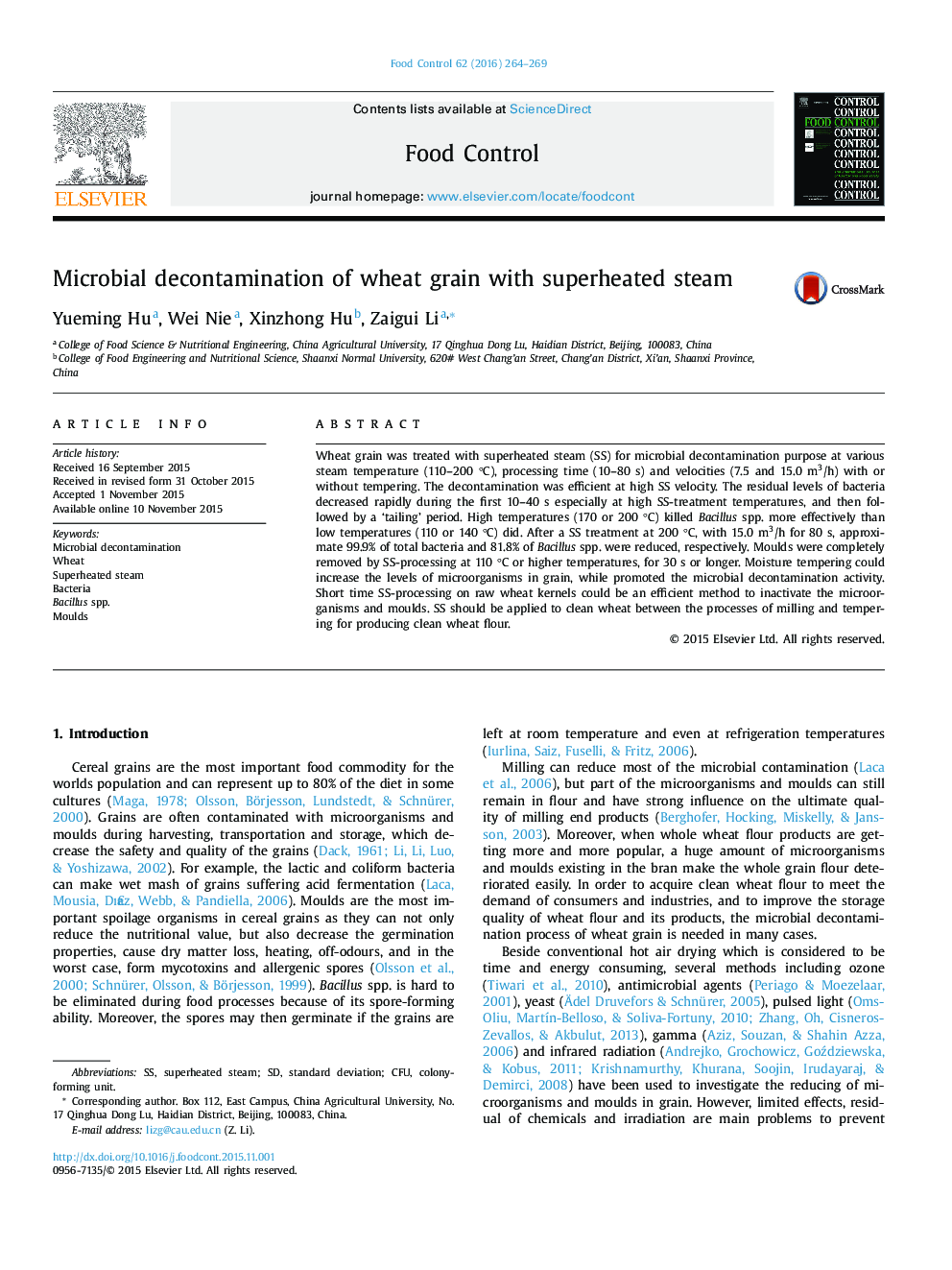| Article ID | Journal | Published Year | Pages | File Type |
|---|---|---|---|---|
| 6390453 | Food Control | 2016 | 6 Pages |
â¢Superheated steam could kill 99.9% of total bacteria and 81.8% of Bacillus spp. in wheat grains in short times.â¢All moulds in wheat grains were killed by superheated steam treatment in 30 s or longer.â¢Moisture tempering promoted the microbial decontamination of wheat grain.
Wheat grain was treated with superheated steam (SS) for microbial decontamination purpose at various steam temperature (110-200 °C), processing time (10-80 s) and velocities (7.5 and 15.0 m3/h) with or without tempering. The decontamination was efficient at high SS velocity. The residual levels of bacteria decreased rapidly during the first 10-40 s especially at high SS-treatment temperatures, and then followed by a 'tailing' period. High temperatures (170 or 200 °C) killed Bacillus spp. more effectively than low temperatures (110 or 140 °C) did. After a SS treatment at 200 °C, with 15.0 m3/h for 80 s, approximate 99.9% of total bacteria and 81.8% of Bacillus spp. were reduced, respectively. Moulds were completely removed by SS-processing at 110 °C or higher temperatures, for 30 s or longer. Moisture tempering could increase the levels of microorganisms in grain, while promoted the microbial decontamination activity. Short time SS-processing on raw wheat kernels could be an efficient method to inactivate the microorganisms and moulds. SS should be applied to clean wheat between the processes of milling and tempering for producing clean wheat flour.
